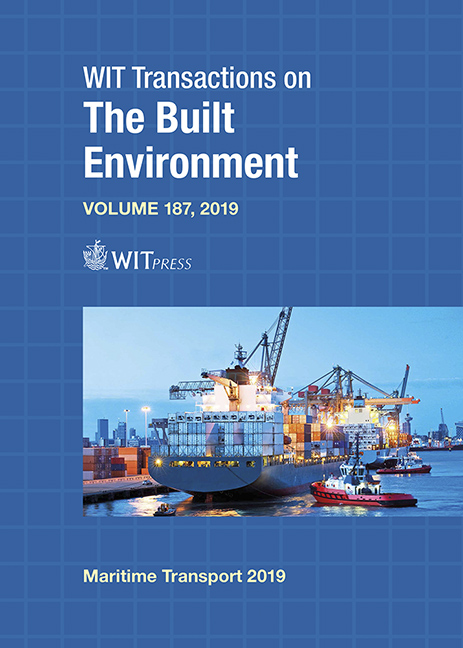AIR POLLUTION IN ANCONA HARBOUR, ITALY
Price
Free (open access)
Transaction
Volume
187
Pages
10
Page Range
199 - 208
Published
2019
Size
374 kb
Paper DOI
10.2495/MT190181
Copyright
WIT Press
Author(s)
LORENZO FILENI, ENRICO MANCINELLI, MAURO MORICHETTI, GIORGIO PASSERINI, UMBERTO RIZZA, SIMONE VIRGILI
Abstract
Ports have always been communication and trade crossroads and have historically promoted the development of local economies. However, being hubs of activities, they are also major sources of noise and air pollution mainly due to ships, but also to vehicles, appliances, offices, etc. The port of Ancona, like many other Italian ports, is very close to the urban area, therefore it strongly influences the air quality of the city so that prolonged exposure to air pollutants generated by the port may cause adverse health effects on a big part of local population. Reducing air pollution without penalizing the local economy is one of the main objectives of the local authorities. The aim of the present study is to evaluate the contribution of different port emission sources, such as “Roll-on/roll-off Passengers” (Ro-pax) ships and fishing vessels, to Ancona air pollution. Between all, the levels of carbon monoxide (CO), volatile organic compounds (VOCs), nitrogen oxides (NOX), sulphur oxides (SOX), and particulate matter (PM) have been evaluated. The study pointed out that most of the emissions in Ancona harbour are due to “Roll-on/roll-off” (Ro-ro) and Ro-pax maritime activities. Thus we focused on Ro-ro/Ro-pax ships’ different emission scenarios based on different sulphur percentages in ship fuel, annual ships calls, manoeuvring/hotelling schedule, and ship characteristics, such as engine power. SOX denoted a strong dependency not only on the percentage of sulphur but also upon the manoeuvring/hotelling time while all other pollutant emissions mostly depend on timing and ship features. Therefore, it was found necessary to know such data exactly to estimate the emissions so to formulate new scenarios in order to choose the best strategies to reduce air pollution.
Keywords
ship emissions, manoeuvring, hotelling, AERMOD





